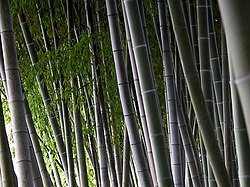Course:CONS200/2018w2/Wiki Projects
| CONS200 Foundations of Conservation | |
|---|---|

| |
| Course Info | |
| Instructor: | M. Fernanda Tomaselli |
| Class Time: | M W F 10-11am |
| Classroom: | FSC 1005 |
| Office Hours: | 11-1 on Mondays or by appointment (Room 4202, Faculty of Forestry) |
| Syllabus: | 2020 Winter |
| 2018-19 Wiki Projects | |
| 2017-18 Wiki Projects | |
| 2016-17 Wiki Projects | |
You (and the other three members of your group) will create a Wiki page on a topic of your choice (Assignment #3). All four members of the group will be able to include the link to that UBC-hosted Wiki page on your curriculum vitae.
Creating Your Wiki Entry
Here are some steps and resources to help you create your page and have it appear on the index for this portal (right side) , so that it can be easily accessed by your peers and your instructor.
1. Login to the UBC Wiki
Click the CWL button on the top left of the page and login from there.
2. Create your User Page/Profile
Your user page is basically a profile page. Its purpose is to provide a space for you to let other UBC Wiki users know who you are and what your affiliation is with UBC. It can also be a space for testing and experimentation with wiki code or mark-up.
3. Claim Your Assignment Page
Just scroll down to Chosen Topics and look for the project area that you will be working on. Click on the project title, which will take you to the edit screen of your project page, add some content and click on save page. Now you have created your assignment page.
4. Add Title and Headings
Some suggested headings to get you started are on the sample page that we have created. To make it easy, you can simply click edit on the sample page, then copy and paste all headings and code from the sample page to your page. Then you can modify and edit as appropriate.
Assignment Guidelines
Length
The Wiki Paper should be between 2,000 and 2,500 words of text in length (exclusive of references, maps, photographs).
Purpose
You should demonstrate (a) your ability to extract and summarize relevant facts and (b) your capacity to rationalize and present logical arguments for further evolution or progress on some aspect of environmental conservation.
Suggested Structure
(modify as appropriate)
- The nature of the issue or problem – location, duration, scope/scale, intensity/frequency/severity of negative impacts, current and predicted winners and losers if no remedial action(s) is (are) taken;
- Categories of actors – those positively affected and those negatively affected;
- The evidence for the problem – sources, their relevance and reliability, balance of argument (for and against), bias declared or inferred;
- Options for remedial action(s) – a rationalized and comparative evaluation of options from technical, social, cultural, economic, financial, political, legal points of view (not all of these categories will be relevant to all situations);
- Recommendations addressed to each of the main categories of actors;
- Conclusion. You should conclude your Wiki paper with a ‘One Minute Message’ or ‘Elevator Message’ addressed to a relevant senior government or non-government policy advisor. This means a half page with three sections – (1) to summarize the topic, or some aspect of the topic, as a policy problem, (2) rationalization of the preferred option, and (3) a clear and specific proposal in simple language without jargon for policy-level actions.
References
- Use the Wikipedia reference style
- Provide a citation for every sentence, statement, thought, or bit of data not your own, giving the author, year, AND page.
- For dictionary references for English-language terms, I strongly recommend you use the Oxford English Dictionary.
- You can reference foreign-language sources but please also provide translations into English.
Rubrics for ‘Graphics, Multimedia, and Hyperlinks’:
- EXCELLENT - Images, multimedia sources and hyperlinks enhance quality of information; all acknowledged with captions or annotations
- GOOD - Images, multimedia sources and hyperlinks support quality of information; all acknowledged with captions or annotations
- BASIC - Insufficient number of images, multimedia sources and hyperlinks were used to support information
- UNACCEPTABLE - Images and graphics has little to do with the questions
Useful links:
- Last Year's Wiki Projects
- UBC Open Case Studies: Features many CONS200 Wiki Projects.